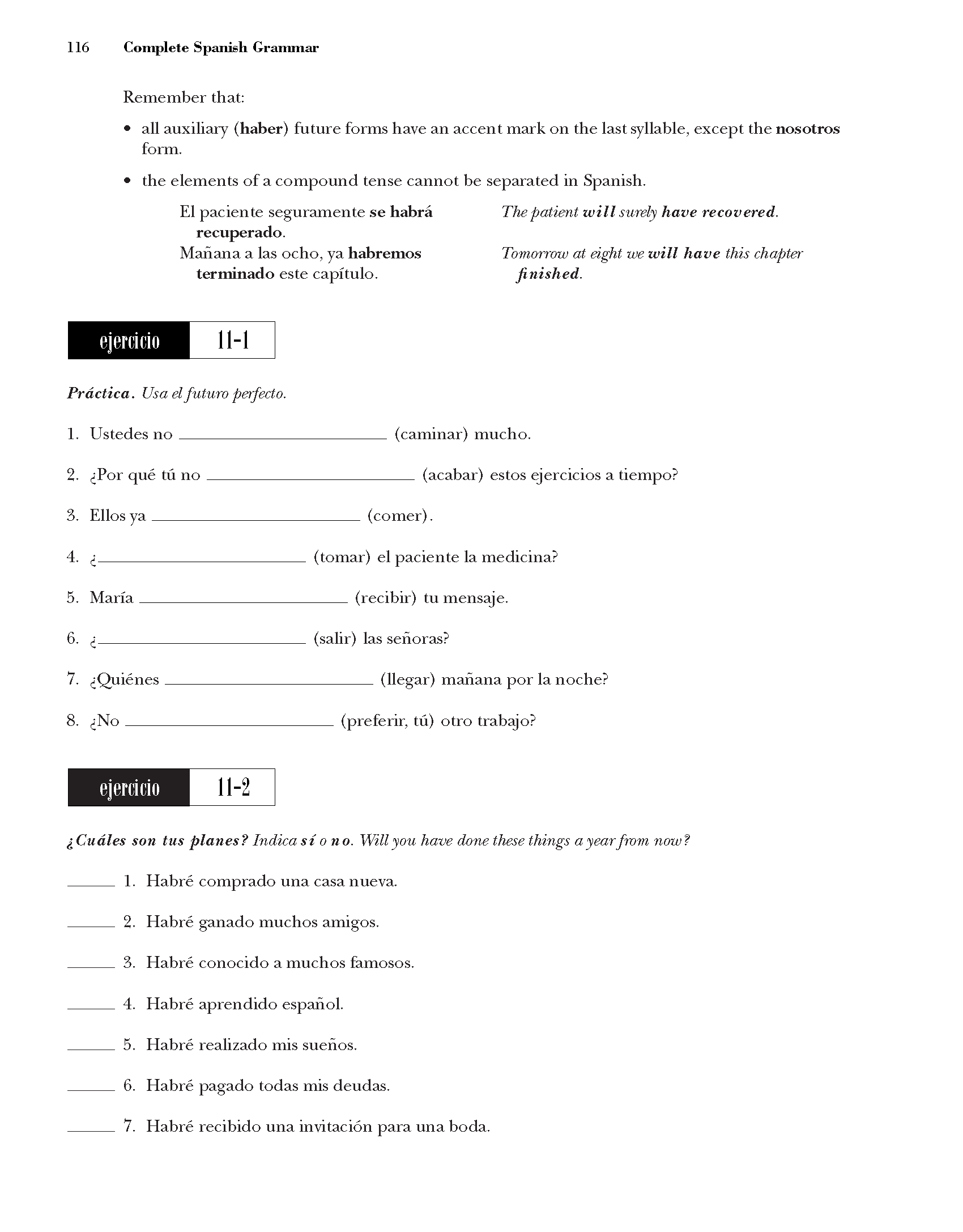CSG127

116 Complete Spanish Grammar
Remember that:
• all auxiliary (haber) futurę forms have an accent mark on the last syllable, except the nosotros form.
• the elements of a compound tense cannot be separated in Spanish.
El paciente seguramente se habra Thepatient will surely have recovered.
recuperado.
Manana a las ocho, ya habremos Tomorrow at eight we will have this chapter
terminado este capitulo. finished.
im
ejercicio
(caminar) mucho.
_ (acabar) estos ejercicios a tiempo?
(salir) las seńoras?
_ (llegar) manana por la noche?
Practica. Usa el futuro perfecta.
1. Ustedes no_
2. ^Por que tu no
3. Ellos ya_
4. a_
5. Maria
6. a_
7. ^Quienes
8. dNo_
_ (comer).
(tomar) el paciente la medicina? _ (recibir) tu mensaje.
(preferir, tu) otro trabajo?
ejercicio
l Cuales son tus planes? Indica si ono. Willyou have done these things ayearfrom now?
_ 1. Habre comprado una casa nueva.
_ 2. Habre ganado muchos amigos.
_ 3. Habre conocido a muchos famosos.
_ 4. Habre aprendido espanol.
_ 5. Habre realizado mis sueńos.
_ 6. Habre pagado todas mis deudas.
_ 7. Habre recibido una inritación para una boda.
Wyszukiwarka
Podobne podstrony:
CSG107 96 Complete Spanish Grammar Remember that -er and -ir verbs have the same ending. The bus is
CSG107 96 Complete Spanish Grammar Remember that -er and -ir verbs have the same ending. The bus is
CSG107 96 Complete Spanish Grammar Remember that -er and -ir verbs have the same ending. The bus is
CSG143 Complete Spanish Grammar Notę that there are two parts or clauses (clausulas) in the precedin
CSG153 142 Complete Spanish Grammar Important: In all the above example sentences, the verb in the m
CSG157 146 Complete Spanish GrammarWlieii Is the Present Perfeet Subjunctive Used in Spanish? You re
więcej podobnych podstron